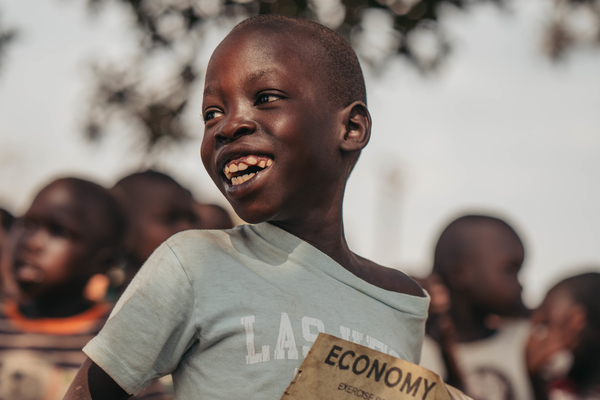Day of the African Child: A Celebration of Hope and Opportunity

Today at Penny Appeal we’re celebrating International Day of the African Child! It’s a day to reflect on all the progress made surrounding education and opportunities for children in Africa – and all the work that still needs to be done to ensure a bright future for Africa's upcoming generations. While there have been huge advances over the past few years in terms of children’s rights on the continent, much improvement is still needed to ensure that all African children have access to quality, life-changing education.
Day of the African Child is celebrated on the 16th of June each year and remembers those who took part in the Soweto Uprising of 1976: when thousands of school children in Soweto, South Africa, participated in demonstrations to protest the poor quality of their education. Tragically, the day turned violent, and hundreds of children were shot, simply for demanding a better future.
In recent years, important steps have been made to increase education access for African children. The number of out-of-school primary-age children in Africa is about 10 million lower than it was in 1996, and the gender gap in education has also been narrowing.
Despite this progress, there are still millions of African children who are not attending school. This is usually due to poverty, conflict, or child labour.
Investing in education is essential for Africa's future and for the future of humanity. It helps to break the cycle of poverty and gives children the skills they need to lead successful lives. Education helps to promote peace and stability and plays a vital role in protecting children from exploitation and abuse.
Eliminating Harmful Practice
This year’s theme, ‘Eliminating Harmful Practices Affecting Children,’ shines a spotlight on some of the social practices that still permeate many societies and act as barriers to children’s rights and fulfilment.
In Dakar, Senegal, an estimated 30,000 - 50,000 children are susceptible to street begging, whether coerced or otherwise. Like millions of children around the world, they live and work on the streets and are typically subject to severe rights violations, in addition to the marginalisation they face through their status. Many street children are runaways or homeless, often forming part of an ‘unseen’ underclass. As UNICEF has warned, this makes data and research more difficult, which limits our full understanding of the problem and hinders relief efforts - leaving countless undetected children trapped in cycles of poverty and abuse.
Quranic schools called Daraas are prominent in Senegal, where many young boys (known as Talibés) receive culturally significant Quranic recitation learning in Arabic. However, as their education typically extends little beyond this, most of the Talibés are illiterate, without a sufficient command of the French language, and are therefore not equipped to compete on the labour market upon graduation.
Penny Appeal has been working with Talibés and madrasas in Senegal since 2018, to improve the conditions and educations of Talibé children within selected Daraa schools in Dakar. Through our intervention, funding, and support, the children have flourished through engaging in positive, educational activities, from French and IT literacy lessons to circus acrobat classes!
Over the past four years we have reduced the time students spend on the streets by 42%, increased the amount of time children are in the supervision of adults by 78%, and given these children a safe space to learn new skills, learn the Qur'an, learn French, and be better prepared for a future without exploitation. 80% of the children have shown improvement in their French work, with 90% meeting the benchmark for their literacy skills. Many graduates have gone on to join apprenticeships and take the next steps in establishing reliable career pathways.
Through the project we’ve also provided vital training to the Daraas and contributed to local advocacy through radio shows focusing on the political issues of begging in Senegal, all while ensuring the Talibés themselves continue to receive a full and wide-reaching education.
You can show your support for this work, and for similar projects across Africa, by donating to Penny Appeal’s Education First appeal, or by sponsoring a Hifz Orphan child to receive a holistic faith-based education.
We must continue working together so that every child has a chance at a bright future. Together, we can continue to make a BIG difference!
THURSDAY 16 JUN 2022
